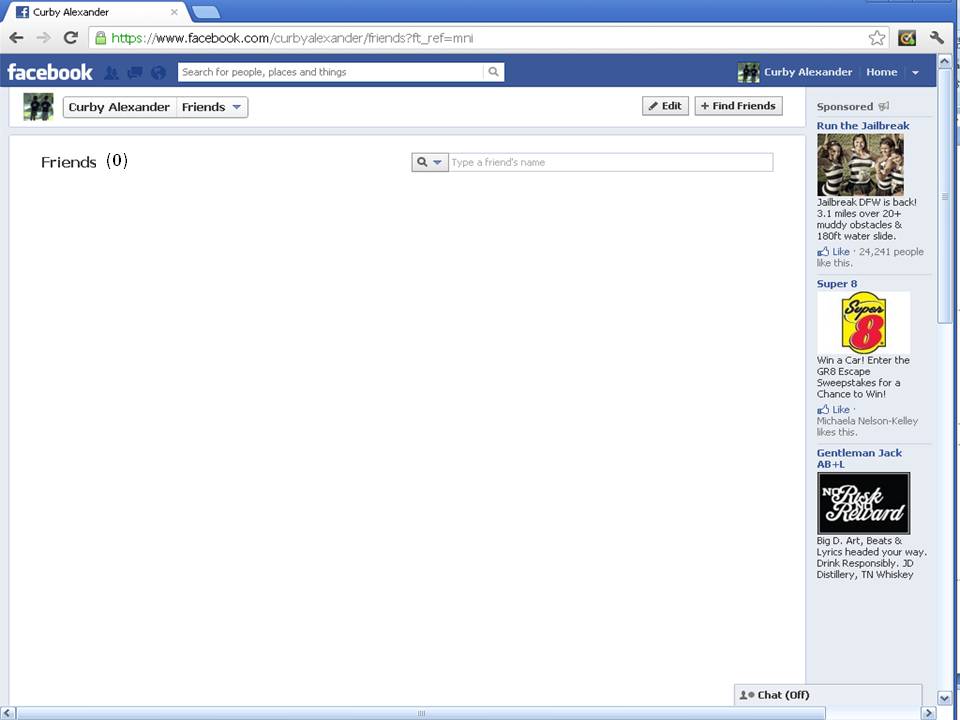This semester was one of the more challenging I've had since I began teaching college. For one, I was teaching 4 classes: three undergrad and one grad. Three of the classes were completely online, and the other was hybrid. The hybrid class and grad class were at a large university in my city, and the other two classes were at a small community college about a thousand miles away. Confused yet? Good, because that is how I felt most of the semester.
What made this particular semester even more challenging was the nature of the courses I was teaching. I call them Mine, Yours and Ours, and each course presented its own set of challenges.
Mine
I have taught these online sections of the same class for about 7 years. This began as an experiment, and it was so popular within the community college setting in which it was offered that they asked me to teach more sections. For three years I only taught in the summer, then I was asked to pick up one section in the fall and spring, and now I am teaching two sections each semester and two each summer. This particular course can be used as a substitute for basic composition, and apparently there are a lot of students who do not want to take basic composition. This class still requires the students to do quite a bit of writing, but the crux of each assignment is not me pointing out the deficiencies in their writing. (Of which. There. Are. Many.) I focus more on their content, but I still point out areas of their writing that need to be improved in the subsequent papers. Anyway, the course is not that hard and students who stay on track all semester almost always make an A. Everyone else usually makes a D or F. Seriously.
I could easily teach this class in my sleep. I know exactly when each assignment is due, what I am looking for from each student, and I can usually successfully guide students back on track when they show signs of dropping out. One of my sections this semester did kind of implode (only 10 out of 23 students completed the class), but this is the first time this has happened. When I finally hand this class over to someone else, which I will be doing in the fall, I feel pretty confident that I know it well enough to help the new instructor get off to a good start. In other words, I feel like I totally own this course and have command of what happens throughout the semester. In fact, most of the teaching I have done throughout my career falls into the Mine category. For good or bad, it's my course.
Yours
Another of my courses this semester was an online graduate course. When I was asked to teach this curse ... I mean, course ... I felt pretty confident I would be able to do it just from the title. I promptly found out which books the professor had been using, obtained desk copies and proceeded to look through her syllabus. I contacted her former teaching assistant, and this is when I found out about something called Intellectual Property. I already knew what this was, but what I didn't know was that at this particular school that meant I was supposed to teach the course "as is." The lessons, assignments, discussions, etc. were already loaded into Blackboard and all I had to do was show up. This didn't sound so bad at first, but as I began looking at the assignments I knew this was going to be very challenging. Maybe I am just immature, but I found it REALLLLY hard to enforce assignments with students that I never would have given in the first place. I never really got control of my serve the entire semester, and I think the main reason was that I felt such little ownership of the course. Many of the assignments were outdated, the technology the students were using was definitely outdated, and some of the tasks the students were asked to perform were not even possible in the most recent versions of the software. To add insult to injury, I was not allowed to have access to the server the students were using to host their websites. When they would e-mail me with questions about uploading (or Putting, in this case), I didn't know exactly how to help them because I did not have access to Put files on the server. How can you help someone with something you have never done before?!? I could not even see the files on the back end to tell them if they were in the right directory or not.
I have taught this exact course at another university, but I completely designed and implemented it myself. I was able to answer student questions (and challenges) with confidence because everything that was there was something I put there. The students learned a lot, and the evaluations turned out pretty good. I will not even look at the evaluations for this class. Had it not been for the fact that this class was made up of pretty motivated Master's students, this would have been a total disaster. I am willing to bet the students already think it was.
Ours
The final class I taught this semester, a hybrid course at a large university, would mostly be described as a team effort. The course outline was made up of several topics I chose myself and some that were "part of the course." Most of the course policies were my decision (attendance, late work, participation), while others were required to be common across all sections (readings, exams). This course has historically been a source of student data using a battery of attitude and self-efficacy instruments, so there were some lessons that we were all encouraged to teach in order to assess changes in those areas. Some of the modules for this course were designed as part of a grant-funded project, and I taught them for all of the instructors. This was quite time consuming, but it did give me a chance to refine my teaching strategy over several iterations, which is good for improving my personal instruction. Most of the instructors for this class give the same assignments, though they differ in how they are graded and how much work the students are expected to do. The area in this course with the most variation was in the final project. Without going into a lot of detail, this varied greatly across different sections of the course. I guess the bottom line here is that overall this is a good course, but the student experience is very different depending on who is teaching the section.
Take-Aways
My experience with teaching this semester gave me a front-row seat into some of the big issues facing higher-ed teaching in this era.
- Canned content : college courses :: canned food : nutrition. I believe it was necessary for me to teach a pre-planned course of someone else's content in order to experience how utterly horrible this is as an educational model. Yet, there are dozens of institutions, both non- and for-profit, that follow this model. My experience with being given a course shell already populated with assignments, readings, discussions and projects was nothing short of disastrous. The entire course, from the terminology to the tools to the links, was out of date. Can I get a "screencast" from the congregation? How about a screenshot? Maybe a video lecture where the slides and voice-over are in the same file? Nothing. This notion of taking a course shell, changing the dates on the syllabus and serving it like yesterday's meatloaf is not as efficient as some people think it is. Instruction is not some thing (i.e., knowledge) that is delivered through a human to other humans. It is the act of a human taking a thing (subject matter) and transforming it into a learning experience for other humans. If a person can gather a bunch of resources and teach himself something new, that's great, but it isn't teaching, and I'm pretty sure universities do not intend to build themselves on this self-help model. If the "teacher" is just the person who makes sure Blackboard is working and points students to the person who actually has access to the server, then why in the world did I bother getting a Ph.D.? Where is the expertise in that?!?
- I have completely re-thought my strategy for handing over my online course this fall. My original plan was put everything in a folder, burn it to a disc and giving it to the new instructor. Given the chance that the new instructor might take my content and do what I was forced to do with the grad class, I will probably only give the new instructor as many resources as he needs to get started. I think there is some value in having to think through the course and make decisions about what to assign, and when. The new instructor should come up with his own tests and assignments based on what he thinks is important to know. I have lived with the course so long, I may be missing the point entirely and don't even know it. I want to be helpful, but I also want what is best for the students. And after my experience with the online grad class, I think that what's best for the students is when the instructor puts his or her advanced degree to good use and brands the course with his or her brain, perspective and creativity, not someone else's.
- Standardized courses are really tricky. My first experience with a standardized course was a public speaking class at a large university that ran between 60-65 section each semester. It was required, in classes of 20-25 students, for every single undergraduate in the university. I don't think there was one graduate instructor, adjunct or professor who taught the class exactly as it was supposed to be taught. I think they were all pretty similar, but you can't expect intelligent, creative individuals to teach something in the exact same way. The hybrid course I taught is a completely unique experience from section to section, and I think that is OK. But you also want to ensure that in a certification program, as this one is, all students are held to the same standards. Standards vs. Personalization. That is a really hard balance to find, and it is something I will have to think about a lot this summer. In the fall I am teaching a 100+ student course with several TAs to "manage" smaller groups of students. I want the TAs to be themselves and explore their own style, but I also want each student held to the same standards. No shortcuts. No trying to win cool points by being lax. Again, I had to have this experience with a multi-section standardized course because I am about to be in charge of one myself.
Every semester I have taught at the college level has been so different. Nothing has played out exactly the same way twice. No two groups of students have responded exactly the same way to the same project, story or reading. This is what makes it fun, but it also makes it incredibly challenging. The only thing that is guaranteed is that nothing is guaranteed. Oh, and cliches. You are guaranteed to see a few of those if you read my blog.


